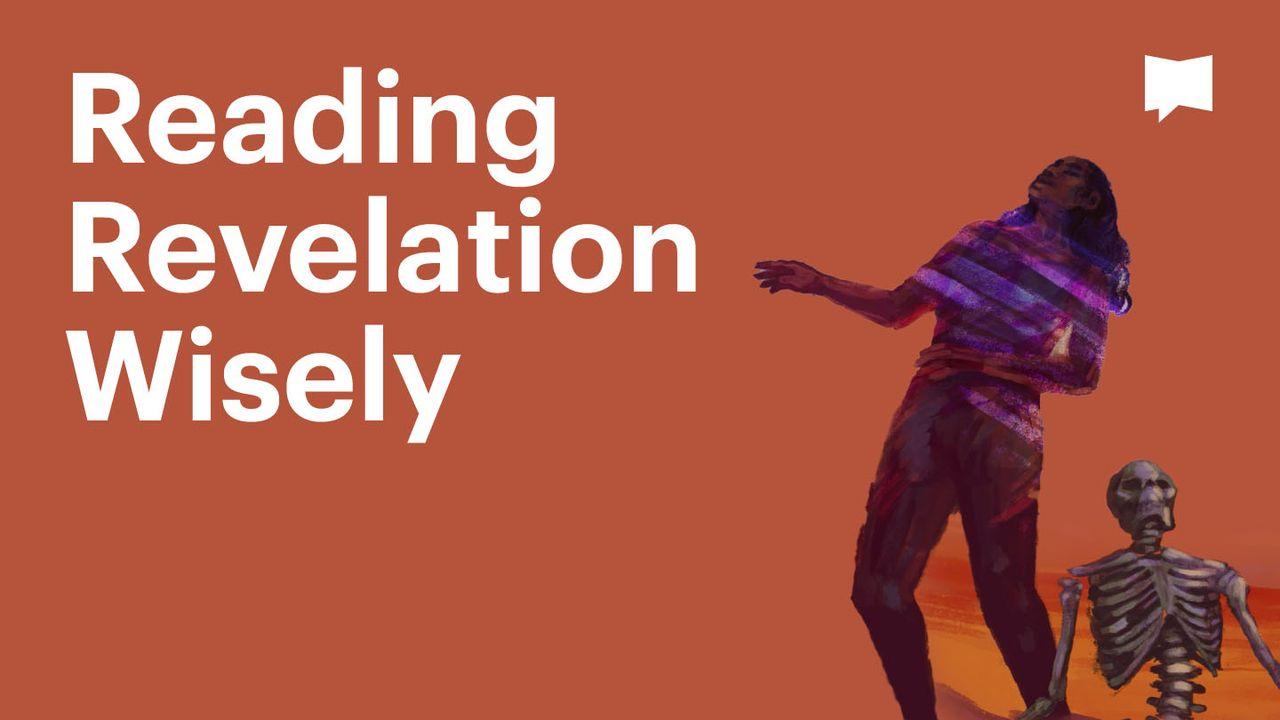BibleProject | Reading Revelation WiselySample

Day 2: Apocalypses in the Hebrew Bible
Understanding the book of Revelation requires an understanding of the view of reality in the Hebrew Bible, as well as the Hebrew Bible’s vocabulary for revelation—galah (גלה) “to expose, reveal.”
Throughout the Hebrew Bible, there are instances of “apocalypses.” These apocalypses are moments in someone’s life when God reveals himself in such a way that the observer is overtaken by a divine vantage point on human history. These moments almost always involve altered states of consciousness (dreams, visions) as a result of ascetic practices (fasting, meditating, prayer, or isolation). In these moments of heightened awareness, the person comes to realize that their current situation or environment is actually permeated with divine presence and power. In an apocalyptic moment, Heaven joins Earth in the mind and heart of the visionary, and they are able to see reality in a way that others cannot.
Although there are various apocalypses in the Bible (see list below), not all are examples of apocalyptic literature. We’ll get to those later on!
- Adam in Genesis 2
- Abraham in Genesis 12, 15, 17, and 22
- Abimelech in Genesis 20
- Jacob in Genesis 28
- Moses in Exodus 3 and 19-24, 25-31, and Deuteronomy 32-33
- Samuel in Shiloh: 1 Samuel 3
- David in Jerusalem: 2 Samuel 7
- Solomon in Gibeah: 1 Kings 3
- Micaiah in 1 Kings 22
- Isaiah in Jerusalem: Isaiah 6
- Jeremiah in Jeremiah 1
- Ezekiel in Babylon: Ezekiel 1, 8-11, 40-48
- Amos in Israel: Amos 8-9
- Zechariah in post-exilic Judah: Zechariah 1-6
- Daniel in Babylon: Daniel 1-7
In today’s readings, you’ll take a look at several instances in the Hebrew Bible where the word galah (גלה) is used and something or someone is exposed or revealed. We’ll look now at one particular story where Jacob has a revelation in Genesis 28:10-17.
The context here is that Jacob is running for his life into exile because he just cheated his brother and deceived his father. As far as he knows, his former life is over. Notice as you read that Jacob’s revelation takes place through an altered state of consciousness—a dream. This is typical of apocalyptic moments in the Bible. Through dreams and visions, people’s consciousness is expanded and heightened, so that they can become aware of ultimate reality in a way that seems normally inaccessible to us. In this story, Jacob becomes aware that his environment is a place where Heaven and Earth overlap, where God’s presence and purpose are active and at work.
God reveals himself so that Jacob can gain God’s vantage point over his circumstances. His painful exile is not the end. In reality, his 20 years of servitude and labor will become the means by which God will fulfill his promises to Abraham—to restore the blessing of Eden to all nations through him. God will provide for Jacob in the midst of difficulty and bring him back to the promised land.
The purpose of this apocalypse is to bring support and reassurance that Jacob’s life has not gone off the rails. Rather, his painful exile will be a part of God’s ultimate plan for good.
About this Plan

This plan is an introduction to reading apocalyptic literature, specifically, the book of Revelation. This reading plan will provide videos, Scripture passages, and helpful tips for understanding the story of the Bible and apocalyptic literature. Think of it as a “what to know” before reading Revelation.
More
We would like to thank BibleProject for providing this plan. For more information, please visit: http://bibleproject.com
Related Plans

The Invitation of Christmas

Real. Loved. Strengthened: 7 Days With God

Parenting Through God’s Lens: Seeing Your Child the Way God Does

Marry Me

Even in the Shadows: Living With Depression

Deep Roots, Steady Faith

The Father Lens: Helping Your Kids See Who God Is Through Who You Are

Where Are You? A Theology of Suffering

The Single Season
